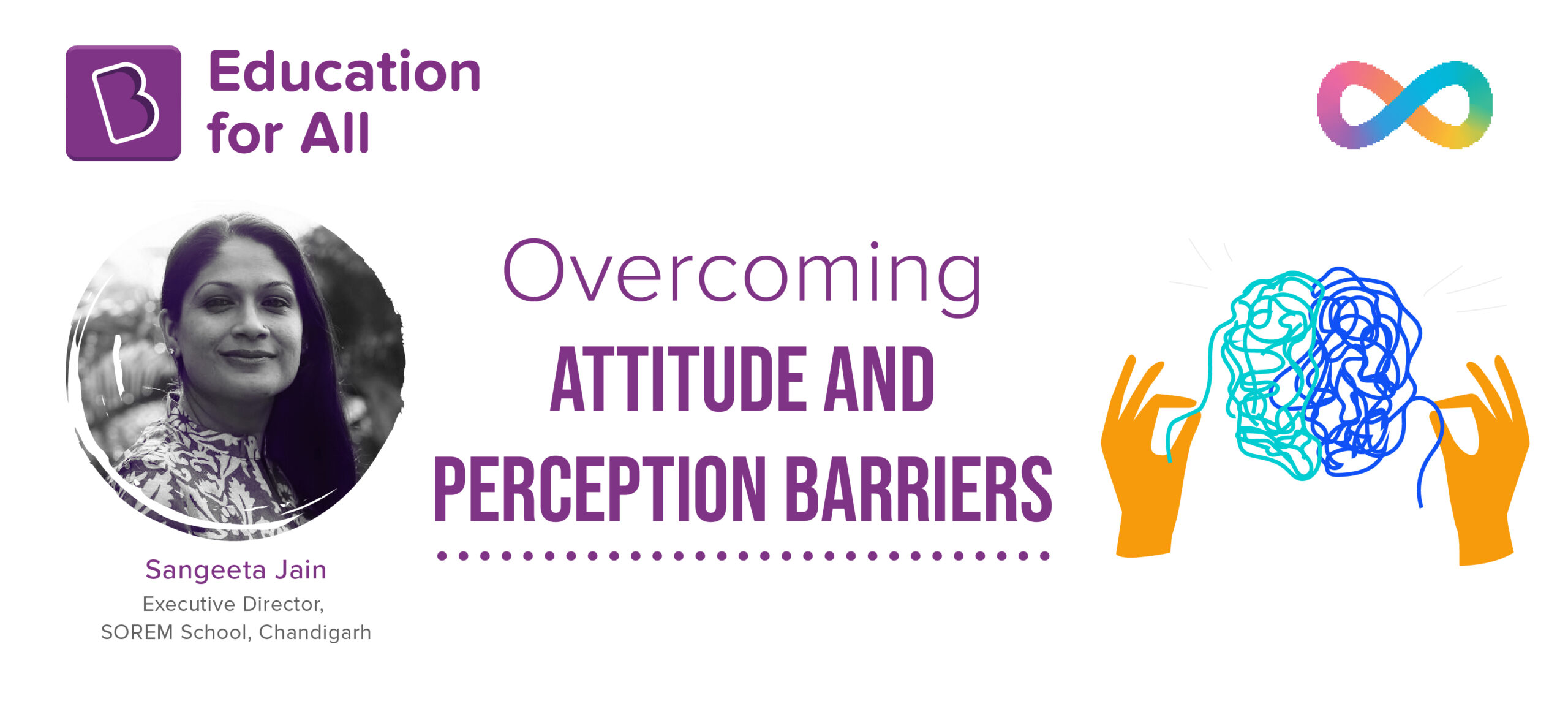
In the recent “Common Ground with Shreya Jain” session, we caught up with Sangeeta Jain, Executive Director, SOREM School, Chandigarh, who delved into overcoming the attitude and perception barriers around neurodiversity and disability.
Working at SOREM, Sangeeta says that she learned the true meaning of life. From Special Olympics winners to promising models, every small success is celebrated with the 160 students at SOREM. However, her journey started two decades ago when her son was diagnosed with autism.
“I began my journey about 21 years ago to learn about the autism spectrum, to empower myself and in turn help him,” shares Sangeeta.
“When he was about one year and eight months old, I felt something missing. At that time, a college student working as a psychologist said it could be autism. I checked with my paediatrician, and she was very honest. She said that during her medical course, they read only one small paragraph about autism, and hence was unaware of the spectrum,” she adds.
So to learn more about the spectrum, she would often visit libraries and many medical centres, including AIIMS but didn’t receive much support However, she was introduced to a parent running a care group, which has now become the National Centre for Autism.
“My only concern was if I took him for this particular training, he could become autistic if he’s not. In my head, I knew he had autism, but I still needed some more time for acceptance. But then, she reassured me, saying it’s just about providing a stimulating environment for any child to learn better. So since then, I’ve never looked back,” says Sangeeta, adding, “My son gave me reasons to become a professional. So that is how I started.”
“The government and all schools are also taking organising workshops, seminars, to sensitise the teachers and the staff over there and deal with the diverse needs of the students,” shares Sangeeta.
Sangeeta believes that government policies and resource room funding, among other concerns, will happen eventually. “But first and foremost is dealing with our attitude, perceptions, and myths about the disability. I believe it is mostly about changing our hearts,” she says.
Working with some government school teachers, Sangeeta learnt that many of these teachers, in addition to teaching, are often assigned a slew of other jobs, and taking care of a neurodivergent child would just be additional for them.
“We need to empower the teachers with the actual concept of inclusion. We cannot fit every child into the specific standardised, normally fringe core curriculum. We need to understand the person in the totality in terms of strength and needs and also help them reach their full potential. This will also include the need to use tools that can support their learning,” she says.
She further shares, “The variety of talents and the limits of the workforce is called the ability and disability diversity. Let’s not put ability and disability into some kind of impairment.”
Sangeeta throws forward a critical thought.
“If there is a girl in a wheelchair who cannot enter a public building, would you say she has a disability? Now, in the same circumstance, what if there is a ramp that can help her access the building? Would this still be considered a disability?”
“So, disability becomes an umbrella term covering impairment in the physical, developmental, intellectual, sensory, or some combination of it, which leads to activity, limitation and community participation.”
To further discuss the perceptions of a disability, Sangeeta discusses the scenario of an 8-year-old and a 21-year-old neurotypical person in a metropolitan city.
BYJUites then talked about the exposure, the support system and other factors that would probably not be the same in a smaller city.
“While a child in the village would have little to no support regarding their disability in a village, changing that one factor and considering them in a bigger city would make things different for them. So, ultimately, the limitation of the disability would technically be the environment,” shares Sangeeta.
“So, when we talk about the attitude, the perceptions, we know they have the capability and the potential. It’s just that we need to understand their capabilities and work towards building an inclusive environment and create a global design for the inclusion,” she adds.
Sangeeta shares a message for the participants: “Inclusion is not just about providing equal opportunities, but about providing opportunities that make one another feel equal. It is about having the choice to live where everyone feels most comfortable and, most importantly, having the opportunity to join what they want to do and be, and not what everyone else wants. And I definitely see this generation coming with the acceptance of this.”
Watch the full video to dive into the interactions between Sangeeta Jain and the BYJUites to learn more about the attitudes and perceptions and how we can overcome them together.
BYJU’S Education for All is on a mission to empower 10 million children by 2025 with education. Through the BYJU’S Give programme, you can contribute to this movement and help children with quality digital learning. You can donate an old device, which we will refurbish, and then use the money raised to buy a new device. In case you do not have a device, you can also donate to an NGO partner, who will use the funds to buy devices for children.
In both cases, we will load our BYJU’S Think & Learn premium content onto these devices and distribute them to children in need.
Anju is a peace-lover, a video-game addict, and a childhood doodler who imagined that the scribbles were words. This storyteller enjoys a good read, some doodling, and learning new languages. One day, she hopes to write her own story someday, and hopefully in the French language, too! She never loses hope of making the world a better place to live in.